Why do beauties need a beard? The history of ta-moko Maori tattoos that are becoming a trend
Girls with ta-moko tattoos, characteristic of the Maori people, can be found today not only in New Zealand. Someone thinks that it is beautiful and original, and someone expresses a protest in this way. Today, traditional ornaments on the face have lost their sacred meaning and have become a fashion trend. And what did they mean before they became part of modern youth fashion?
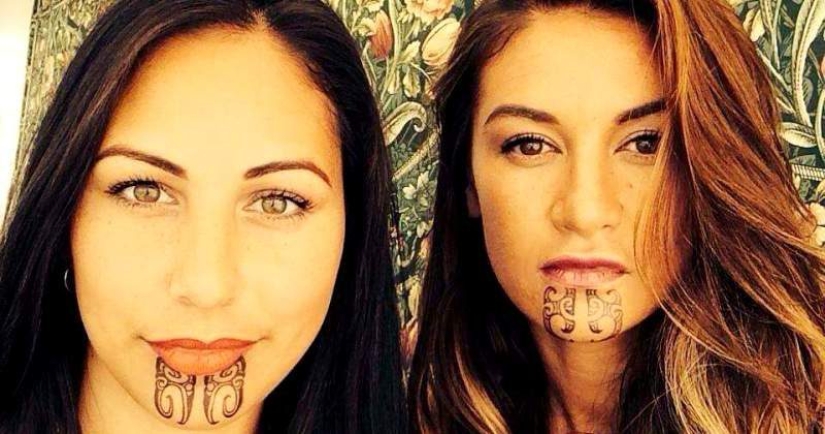
The tradition of putting patterns on the chin appeared among the Maori many centuries ago. Today it is no longer possible to say for sure who first decided to put a drawing on the lower part of the face. The first European to see people with ta-moko in 1769 was the British discoverer Captain James Cook.

Here is what the famous traveler wrote in his travel magazine:
And Cook also noted that among the hundreds of Maori whom he was able to carefully examine, there were no people with two identical drawings.
Tattoos were not an original find of the Maori — all the peoples of Eastern Polynesia possessed the art of body painting and used similar techniques and tools. But New Zealand, located in a rather cool climate zone, did not have tattoos on the body, since they were hidden by clothes for most of the year. Maori tattooed their legs, arms and buttocks, but not as willingly as ta-moko. The "beard" was always visible and therefore very popular.

The tattoo artists were called tohunga-ta-moko and were inviolable persons. These could be both men and women who received their skills from the older generation. Tattooists used not needles as tools, but a special thin chisel made of albatross bone.

The drawing was applied using hammer blows, short notches, so you can imagine how painful this procedure was. After the end of the master's work, the client's mouth swelled so much that it did not open, and special wooden funnels were used to feed the unfortunate.
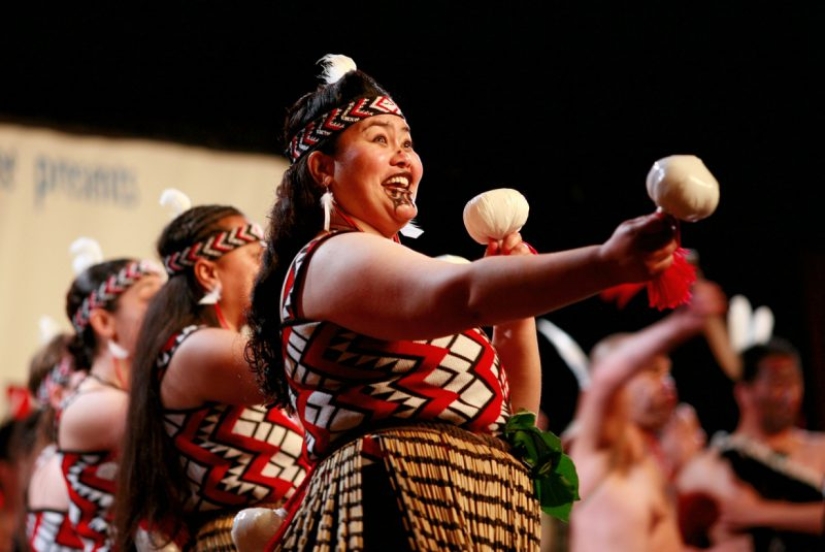
The first purpose of ta-moko is a symbol that a guy or girl has entered adulthood. In addition, the pattern around the mouth and on the chin was applied in order to show the status of the owner in society. There were special drawings that only leaders and warriors from the upper class could afford.
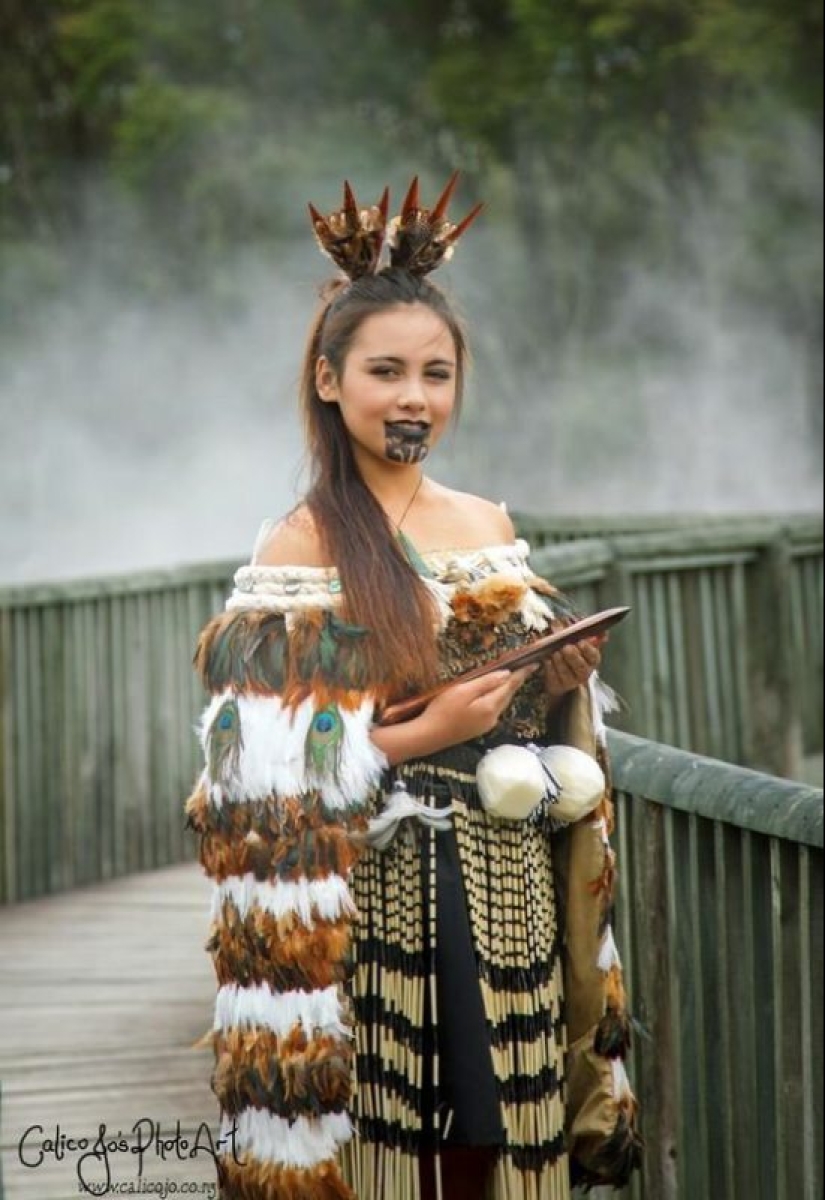
In addition, the "beard" could tell about the military glory of the owner — about the number of military campaigns, wounded and killed enemies. Tattoos of Maori warriors were made throughout their lives, replenished with new lines after successful battles.
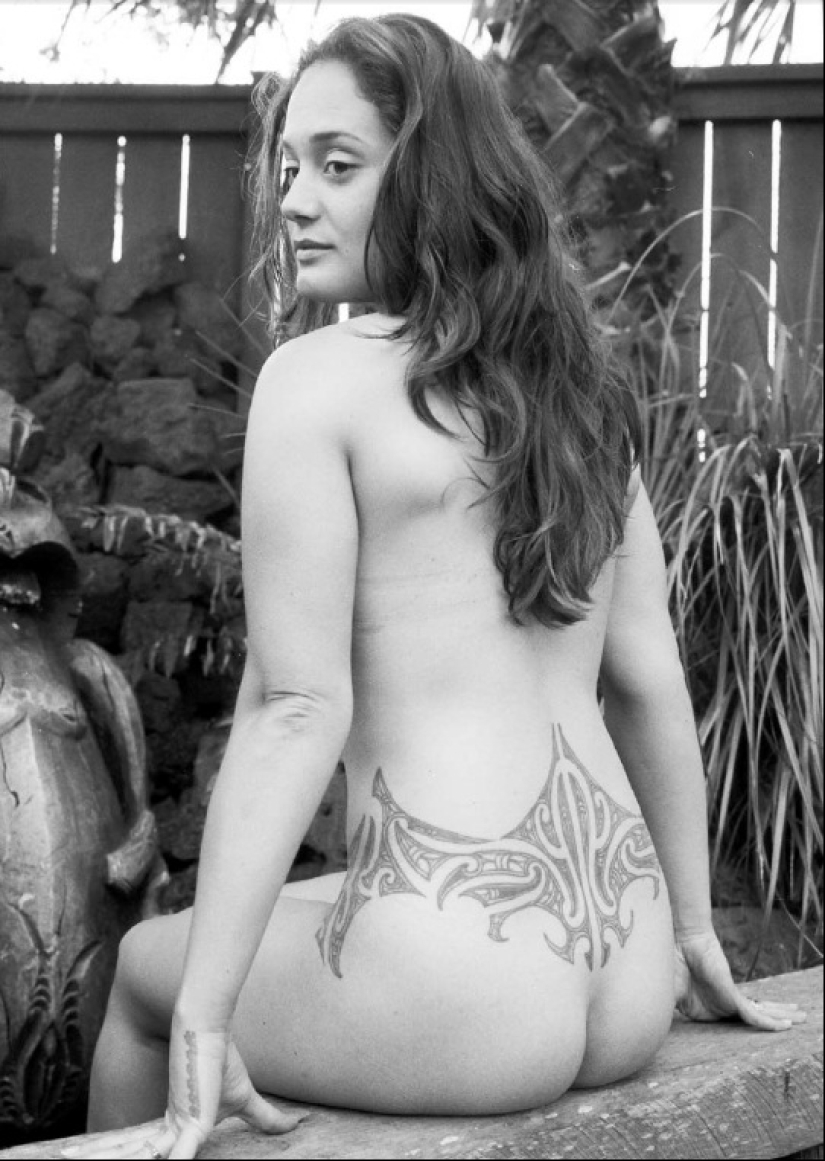
Women's ta-moko did not carry particularly important information and usually talked about her coming of age, marital status and the number of children. For young people, a tattooed chin was a way to attract representatives of the opposite sex, since an artfully made "beard" was considered an exquisite female decoration. Tattoos on the lower back were also considered a special chic for Maori girls (does it remind you of anything?).
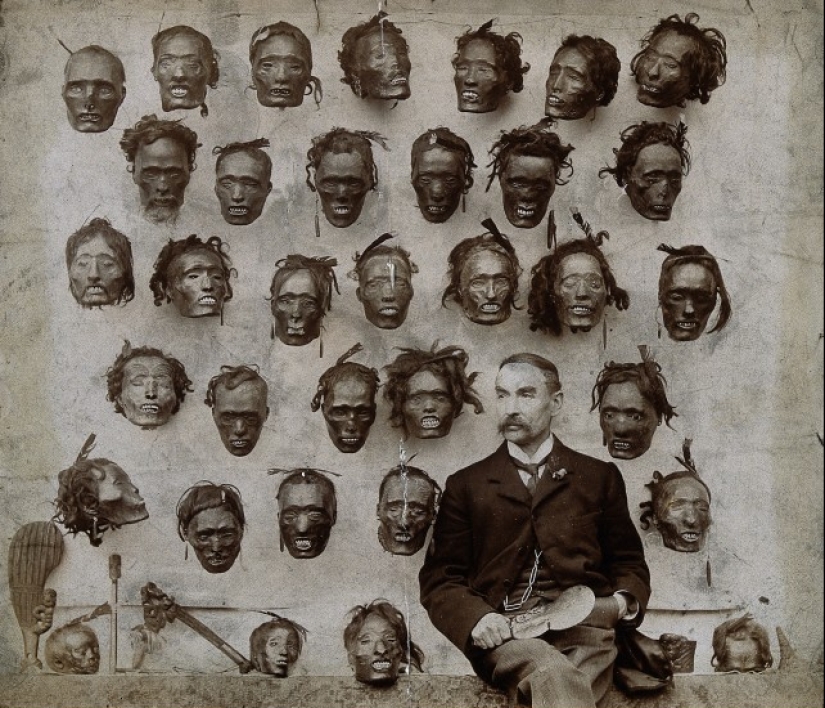
And now let's talk about the not the most pleasant sides of the custom. After the death of a warrior, his head was separated from the body and dried in a special way so that the ta-moko were clearly visible. The skulls of the ancestors, covered with tattooed skin, were put on public display in honor of the holidays and served as family pride items.
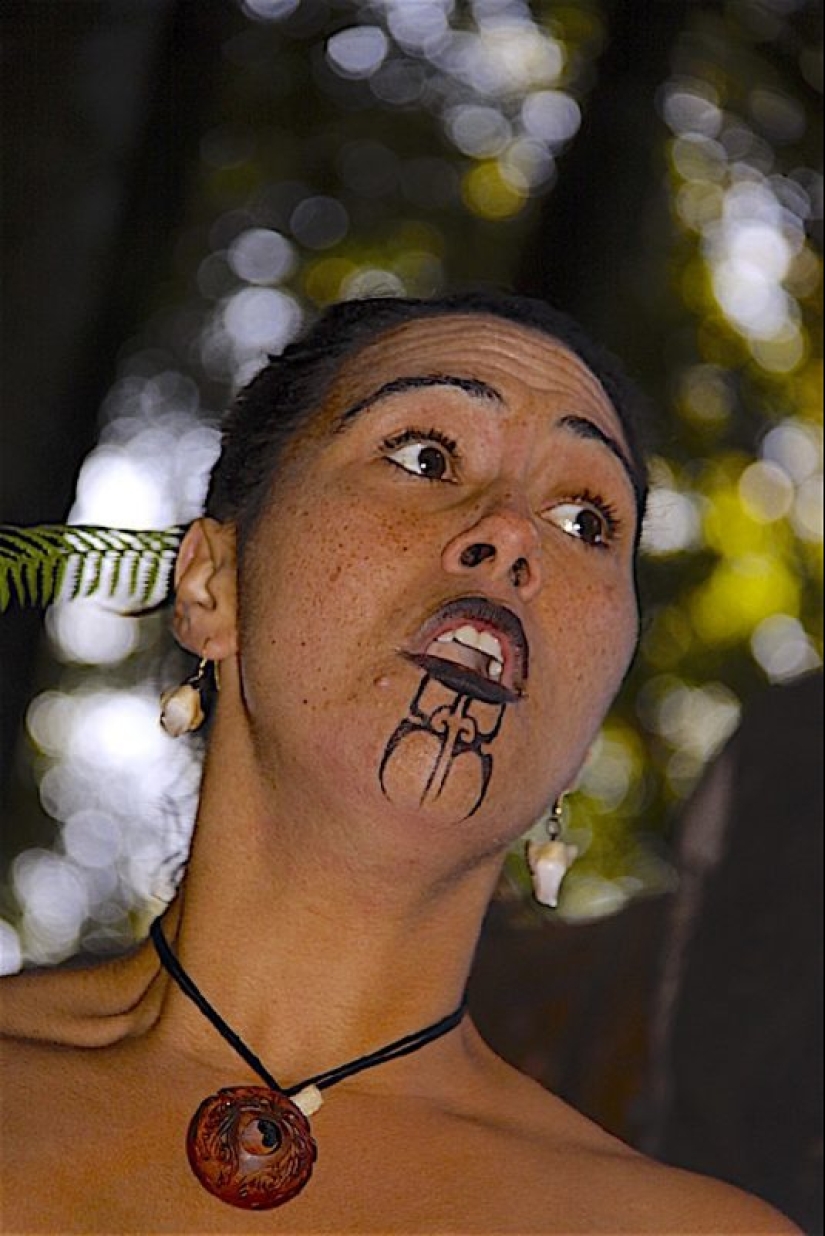
Such heads were called mokomokai and they were highly valued by the British. At first, the Maori were not too willing to part with the shrines, but when they began to offer muskets and gunpowder in exchange for skulls, they began an active trade. European and American museums eagerly acquired mokomokai for their expositions, and in addition, many visiting "bounty hunters" wandered through the mountains and valleys of New Zealand, who were hired by collectors and dealers of rarities.
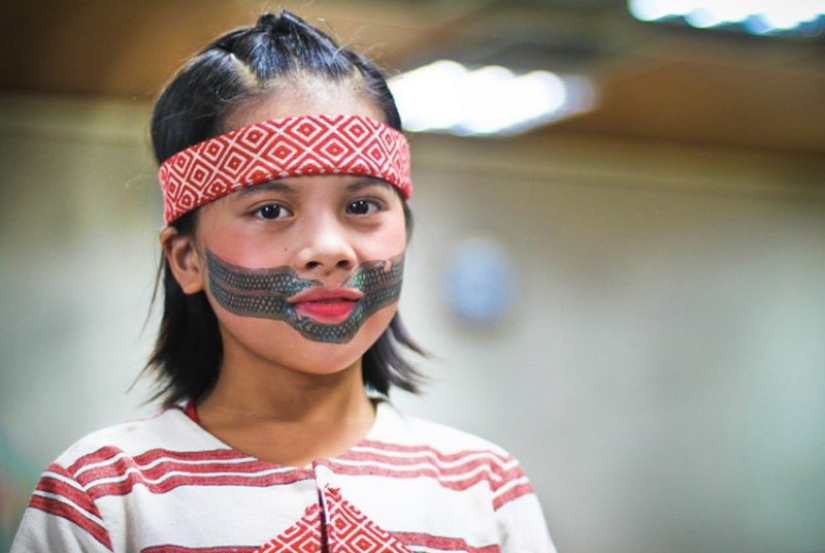
This led to the fact that in the second half of the XIX century, local residents learned to deftly deceive buyers by forging original mokomokai. Ta-moko was applied to the heads of corpses, and in addition, the Maori began to tattoo slaves in order to sell their skull profitably after death. The application of drawings put on stream has led to the fact that they have become primitive and unattractive.
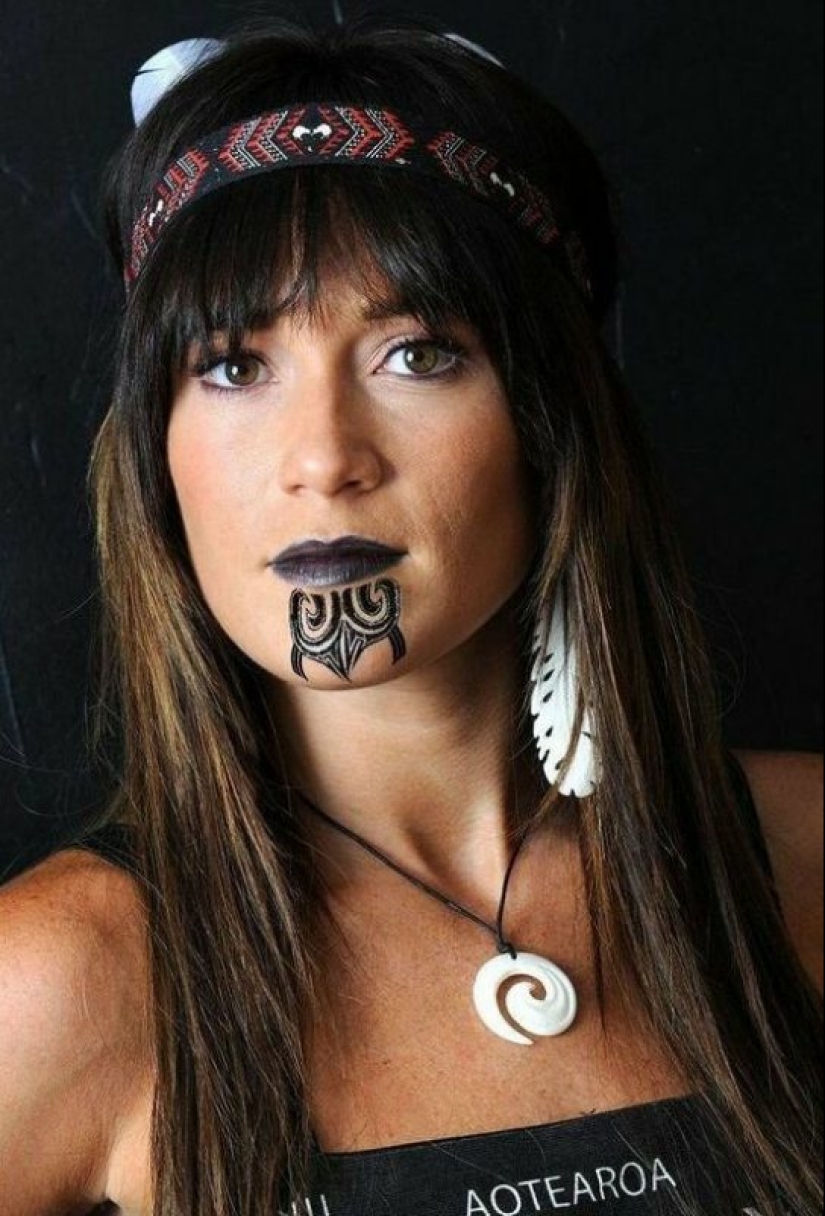
Gradually, Maori men stopped making "beards" — at the beginning of the XX century they could only be seen on the faces of old people. For women, this custom lasted longer and beauties with ta-moko could be seen back in the 20s of the last century.
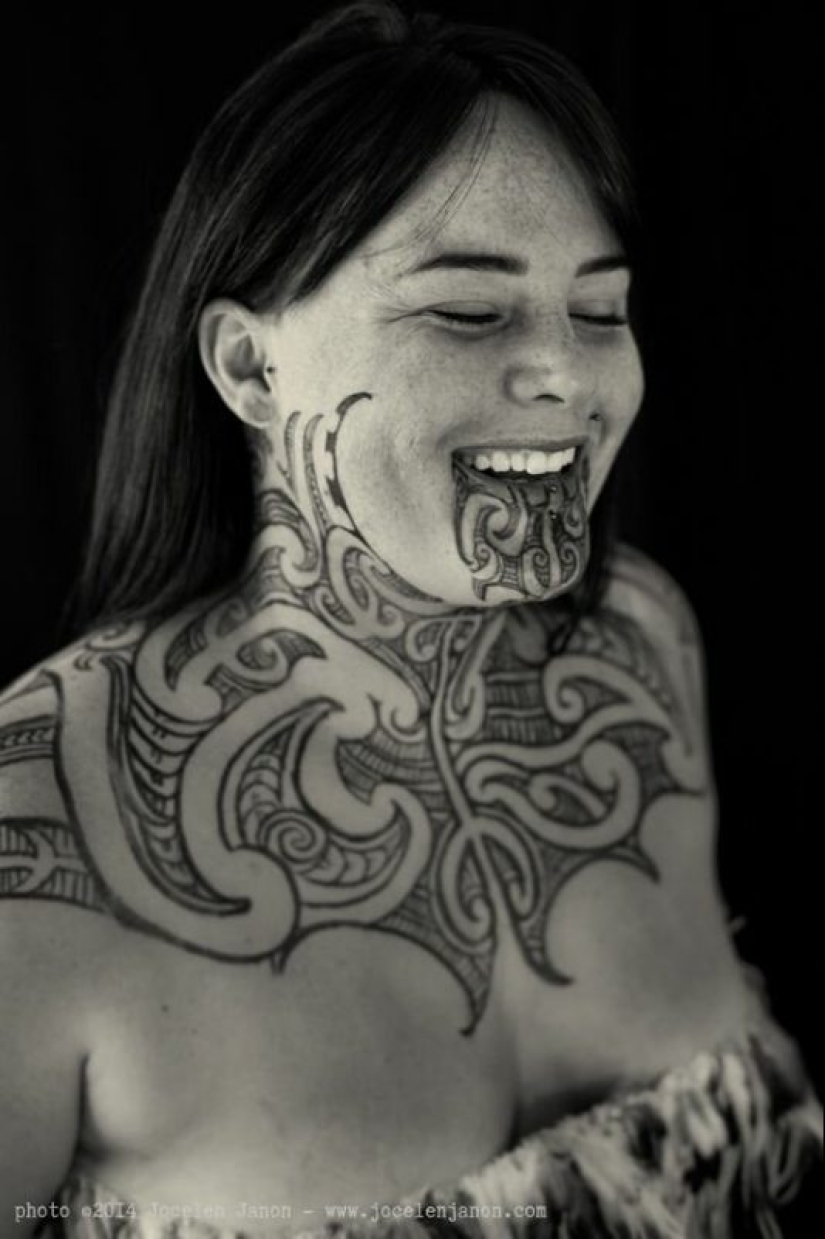
The renaissance of this ancient custom began at the end of the XX century. The first to remember the ta-moko tradition were members of street gangs, for whom a tattoo on their face became a sign of masculinity and independence. Soon the criminal elements were joined by activists of patriotic movements seeking to preserve the ancient traditions of Maori.

Now the tattoo on the chin has become fashionable all over the world and especially among the fair sex. But it is worth mentioning that it is impossible to call such an ornament ta-moko in the presence of Maori. For the islanders, this term means a sacred ritual drawing and in criminal circles, the owner of the "beard" can be "asked".
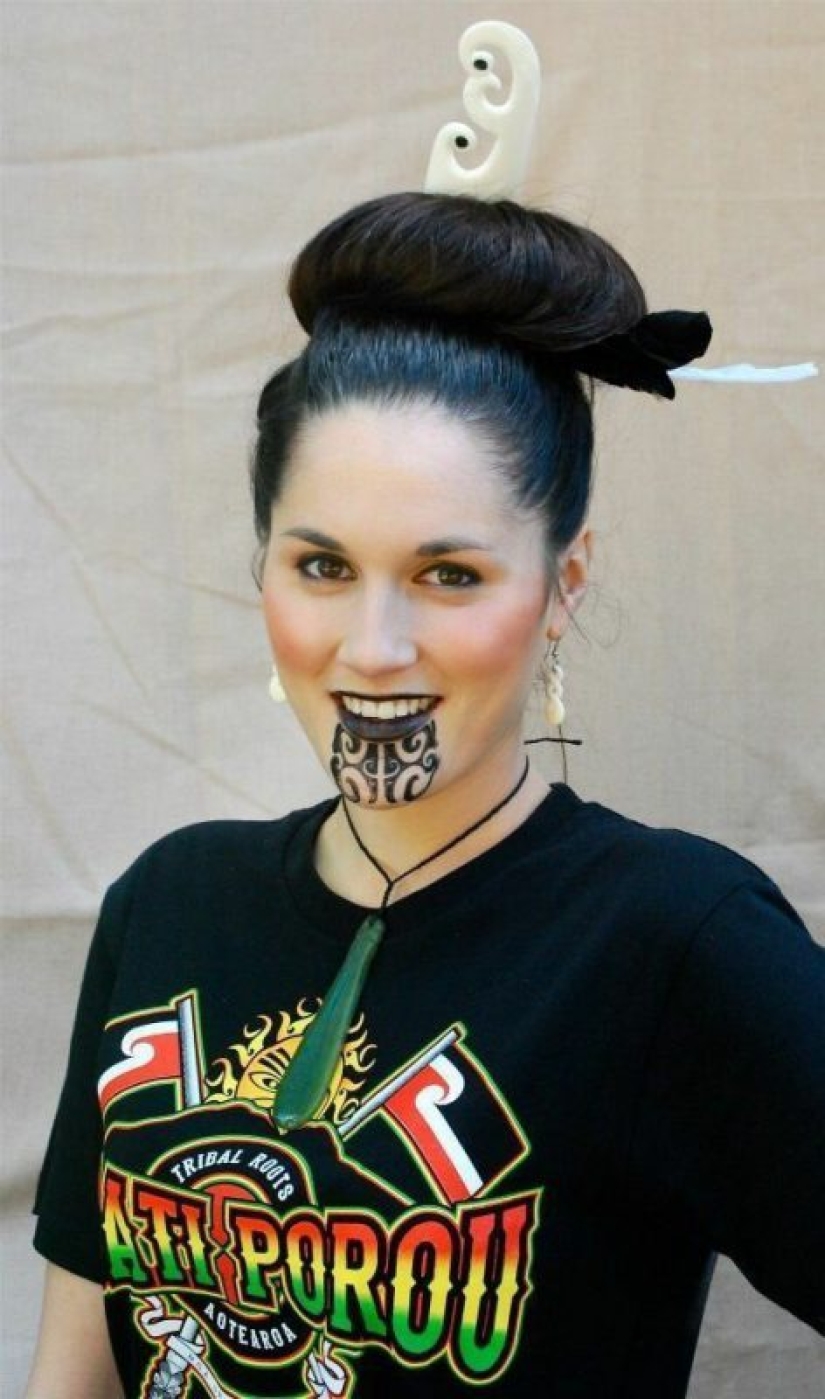
In order not to offend anyone's feelings, professional tattoo artists avoid the complete similarity of the ornament with the sacred originals and even came up with a special term for such jewelry — "kirituhi". Maori activists insist on using this word, which means simply "a drawing applied to the face" in translation.
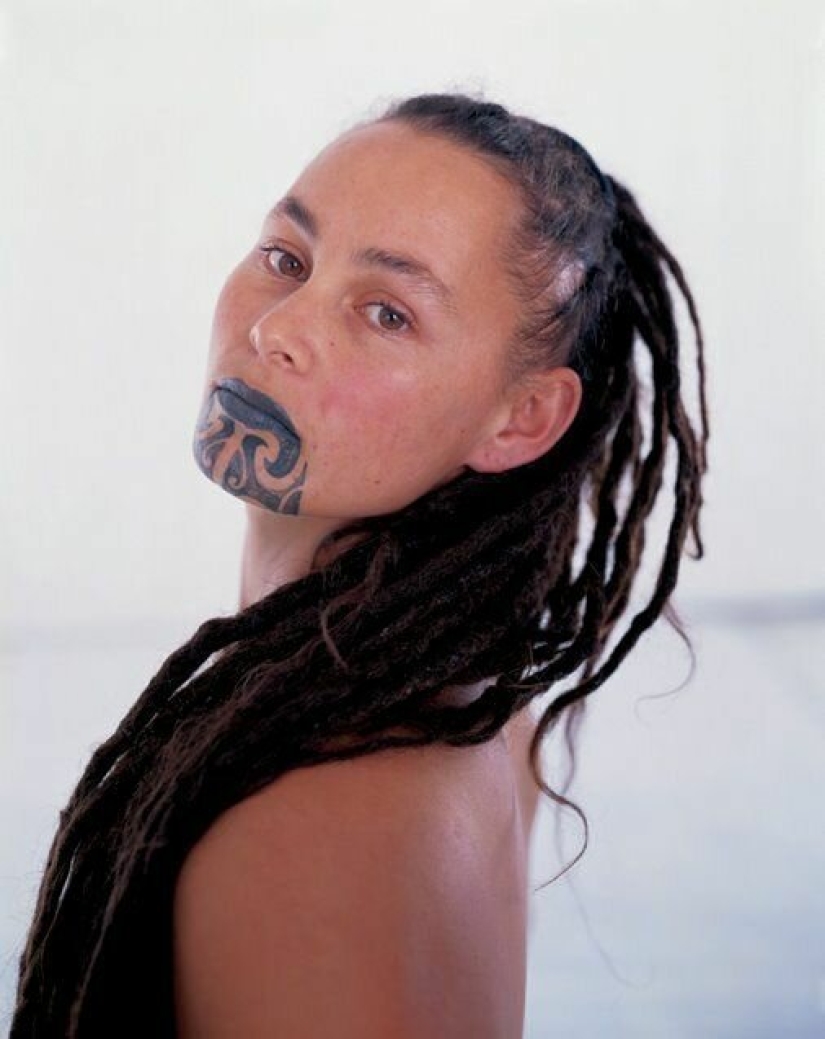
Do you think the new fashion will take root, or will girls from ta—moko soon regret that they succumbed to the fashion trend?
Recent articles

It's high time to admit that this whole hipster idea has gone too far. The concept has become so popular that even restaurants have ...

There is a perception that people only use 10% of their brain potential. But the heroes of our review, apparently, found a way to ...

New Year's is a time to surprise and delight loved ones not only with gifts but also with a unique presentation of the holiday ...